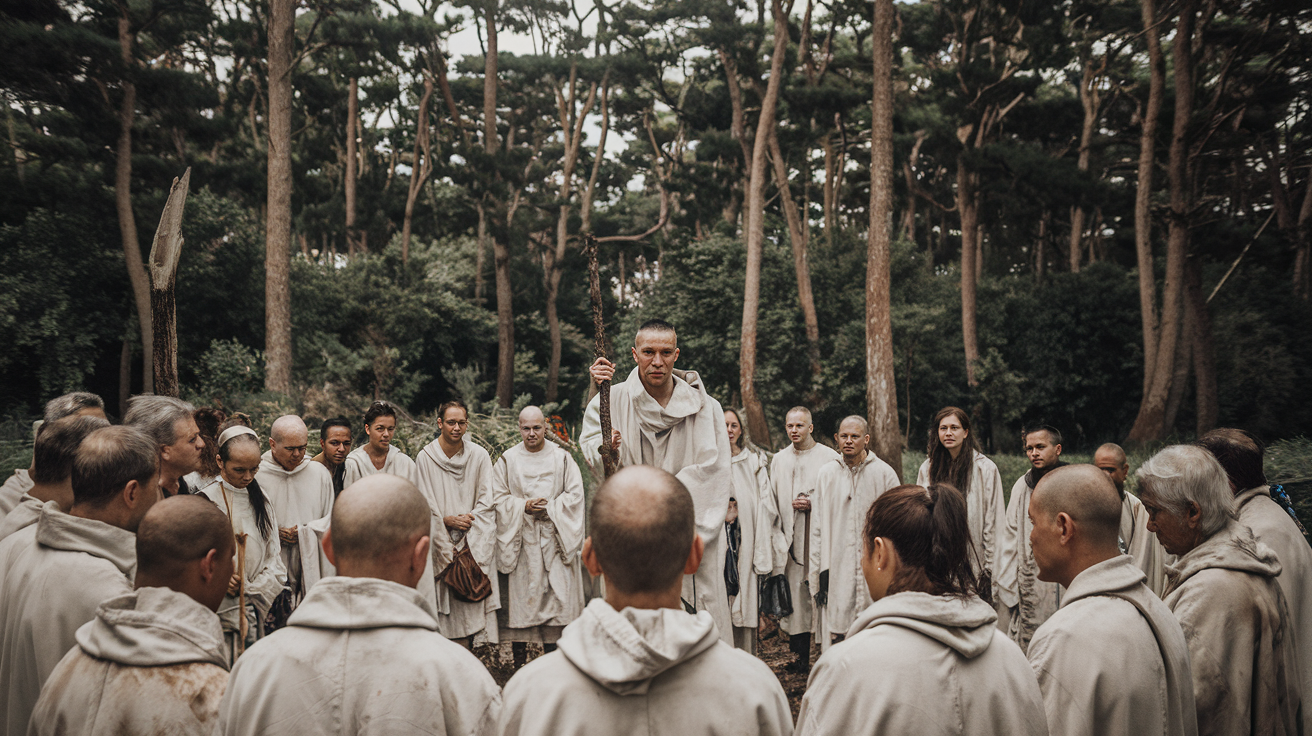Human Gathering Cult: Exploring Mysteries and Societal Impact

The concept of a human gathering cult has fascinated and unsettled societies for centuries. Often shrouded in mystery, these gatherings are marked by unique rituals, powerful leaders, and devoted followers. But what defines such a cult, and why do people gravitate toward these groups? This article dives deep into the enigma, exploring its origins, psychological appeal, practices, and societal implications.
What is a Human Gathering Cult?
A human gathering cult refers to an organized group with a shared belief system, often centered around a charismatic leader or a set of esoteric ideologies. These cults prioritize exclusivity and rituals, fostering a sense of belonging among members. Their gatherings often carry an air of secrecy, adding to their intrigue.
Origins of Cult Practices
The roots of cult practices can be traced back to ancient times when spiritual and communal gatherings were central to human societies. Over time, these gatherings evolved, with some becoming highly structured and exclusive, giving rise to what we now call cults.
Characteristics of the Human Gathering Cult
Charismatic Leadership
At the core of many human gathering cults is a charismatic leader. This figure often claims to possess special knowledge or divine authority, drawing followers who seek guidance and purpose. Their influence is a defining feature, as they dictate the group’s direction and practices.
Exclusive Beliefs
Cults typically promote unique or unconventional beliefs that set them apart from mainstream ideologies. These beliefs can range from spiritual enlightenment to revolutionary societal change, creating a distinct identity for members.
Rituals and Symbolism
Rituals play a crucial role in reinforcing the group’s unity. From symbolic ceremonies to chants, these practices create a sense of shared purpose and deepen members’ commitment.
Secrecy and Isolation
Secrecy is another hallmark. Cults often maintain an air of mystery, restricting access to outsiders. This exclusivity helps create a tight-knit community, shielding members from external criticism.
Psychological Appeal of the Human Gathering Cult
Sense of Belonging
One of the most compelling reasons people join such groups is the sense of belonging they offer. In an increasingly disconnected world, the human gathering cult provides a community where members feel valued and understood.
Purpose and Meaning
Cults often promise answers to life’s big questions, providing purpose and direction. For individuals grappling with existential doubts, this clarity can be immensely appealing.
Emotional Support
Members often form deep emotional bonds with one another, creating a support system that can be especially attractive to those who feel isolated in mainstream society.
Common Practices in Human Gathering Cults
Initiation Rites
New members typically undergo initiation rites, which serve as a symbolic entry into the group. These rituals reinforce commitment and mark the transition into a new identity.
Collective Ceremonies
Regular gatherings often involve collective ceremonies that reinforce the group’s beliefs and unity. These events are typically highly structured, with symbolic actions and speeches.
Obedience and Discipline
Strict rules and a culture of obedience are common. Members are expected to adhere to the leader’s directives and maintain loyalty, ensuring the group’s stability.
Famous Examples of Human Gathering Cults
Ancient Cults
In ancient civilizations, cults such as the Eleusinian Mysteries and Dionysian rites thrived, blending spirituality with communal rituals. These gatherings offered spiritual insights and social cohesion.
Modern-Day Cults
In recent history, groups like Heaven’s Gate and Jonestown have captured public attention, often with tragic consequences. These modern examples highlight both the allure and potential dangers of cult dynamics.
The Influence of the Human Gathering Cult on Society
Cultural Impact
Cults often challenge societal norms, introducing new ideas or philosophies. While some contribute positively by fostering innovation, others have sparked controversy and conflict.
Moral and Ethical Questions
The secrecy and control within cults raise moral and ethical concerns. Critics question the boundaries between personal freedom and group influence, especially when members are manipulated.
Debunking Myths About Cults
Despite their notoriety, not all cults are harmful. Many operate peacefully, focusing on spiritual growth or community service. Understanding the nuances can help separate myth from reality.
Not Always Dangerous
The term “cult” often carries negative connotations, but not all such groups engage in harmful activities. Some focus on positive change or personal growth.
Diverse Motivations
People join cults for a variety of reasons, including spiritual exploration, curiosity, or a desire for connection. Recognizing these motivations helps demystify the phenomenon.
FAQs
What defines a human gathering cult?
A human gathering cult is an organized group centered around shared beliefs, rituals, and often a charismatic leader.
Why do people join cults?
Individuals are drawn to cults for the sense of belonging, purpose, and emotional support they provide.
Are all cults harmful?
No, not all cults are harmful. Some focus on positive goals like community service or personal growth.
What role do rituals play in cults?
Rituals reinforce unity and commitment among members, serving as a cornerstone of the group’s identity.
How do cults influence society?
Cults can challenge societal norms, introduce new ideas, and raise ethical questions about group dynamics.
What makes cults controversial?
Secrecy, strict control, and potential manipulation of members often make cults a subject of public debate.
Can cults have a positive impact?
Yes, some cults contribute positively by fostering innovation, providing community support, or promoting spiritual growth.


